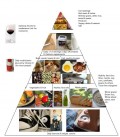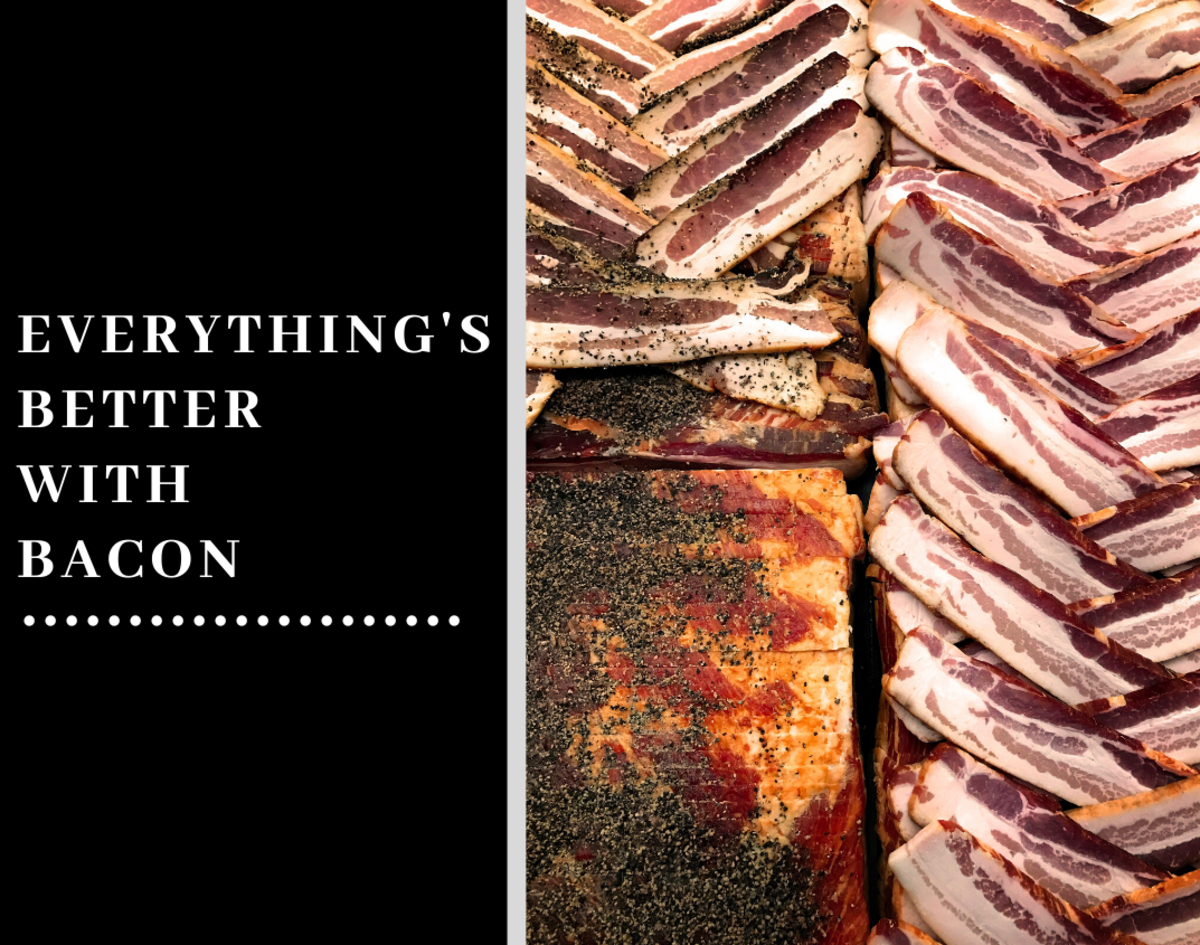- HubPages»
- Personal Finance»
- Frugal Living»
- Household Expenses
Making Smart Choices when Grocery Shopping

We've all been grocery shopping before. And while this task is easily completed, there are many rules that must be followed to save money and to be healthy. There are many forms of temptation in the store, and following this list of rules will ensure a more healthy you and also will save you money.
Rule #1: Shop the perimeter of the store FIRST
You've all shopped at grocery stores, and they're all very similar. Along the perimeter, you'll find the fresh produce, meats and poultry items, milks and juices, eggs/yogurt/butters, deli counter, prepared food counter. You'll want to stick to purchasing the majority of your food items from here because it's the healthiest.
Typical Grocery Store Layout
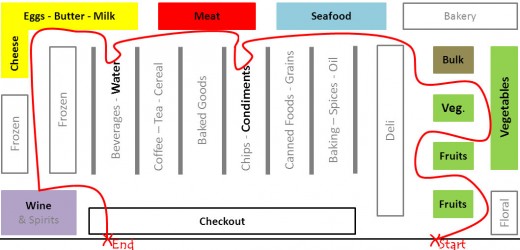
Rule #2: Only shop for items in the center aisles on a limited basis
Here's where all the junk is at. The cookies, chips, processed and canned foods, cereal that is unhealthy, etc. They're all in the middle aisles. Unless there is something healthy here, you'll want to spend the least amount of time in the middle.

Rule #3: Take your time to shop for produce
If every single apple, carrot, banana, celery stalk were the same, you'd just brainlessly pick it up and carry on. But they're not the same. You'll want to carefully select produce items. Being sure they're not too ripe and choosing the one that looks the freshest and juiciest.

Rule #4: Choose the leanest meats
When choosing meats, choose the leanest meat you can find. Heavy marbled cuts do have better taste and are more tender when eaten, but are more unhealthy. Choose the leaner cuts of meat for better health. And don't purchase gigantic sized meats. A typical serving of meat should be around the palm of your hand, which is around 6 or so ounces.
Rule #5: Group "like" items together in the shopping cart
Group all cold items in one place. By doing so, they'll remain fairly cold while your completing your grocery list. If you placed cold and frozen items haphazardly, they can sweat out and get warmer faster and even get other items in your cart wet. Likewise, group fragile items separately in the cart. Some items that should be placed separately are eggs, chips, cookies in flimsy packaging and breads.
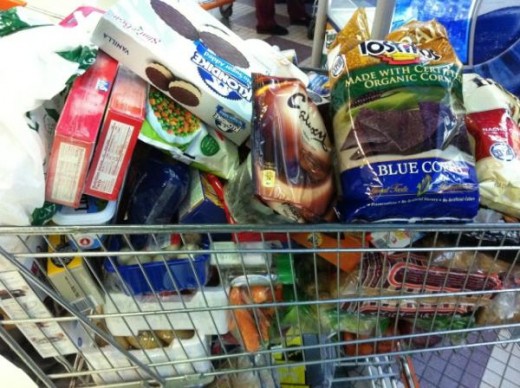
Rule #6: Never shop on an empty stomach
It's been proven that while shopping when hungry, you put more food items in your cart because everything "looks good" and tasty. Avoid spending extra money and shop when you've just eaten and have a full stomach. Then the food won't look so appetizing anymore and you'll stick to your list.
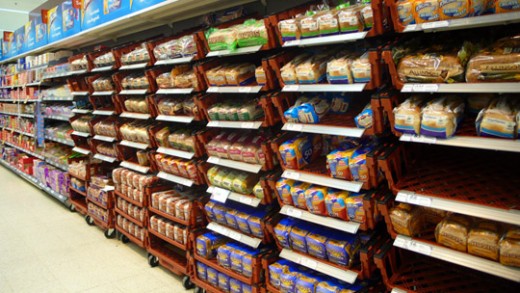
Rule #7: Feel the bread for softness
If you shop for breads, test how soft they are by pressing gently on the loaves. This will provide you an indication on how fresh they are. Choose the softest one.
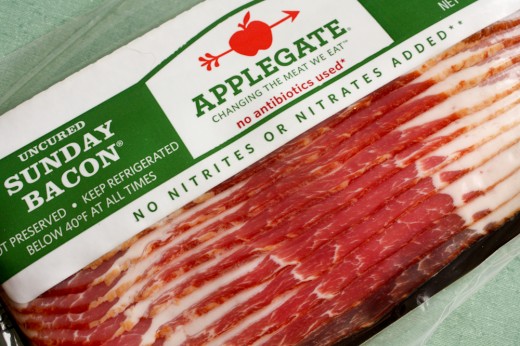
Rule #8: Choose meats that do not have Nitrites and/or Nitrates
All processed meats contain nitrites and nitrates. These include bacon, cold cuts, sausages and hot dogs. It's something that you can't really get away from....until recently. There are many brands out there in the market that offer processed meats without nitrates and nitrites and are minimally processed. Applegate Farms is a good example of a company that does not add additional nitrites/nitrates to some of their products.
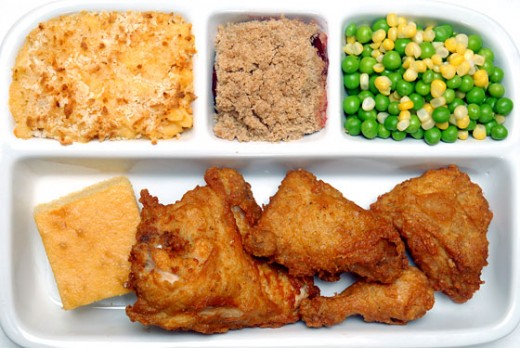
Rule #9: Avoid the breakfast and dinner quick meals usually in the frozen section
These frozen and boxed items are just downright unhealthy. They have a ton of ingredients and may contain monosodium glutamate (MSG) along with being extremely high in sodium. Some entrees coming in at over 1,500 mg of sodium in a single serving. And that is more than half of your recommended daily allowance of salt. Sure they're quick and may taste good, but they come at a price.
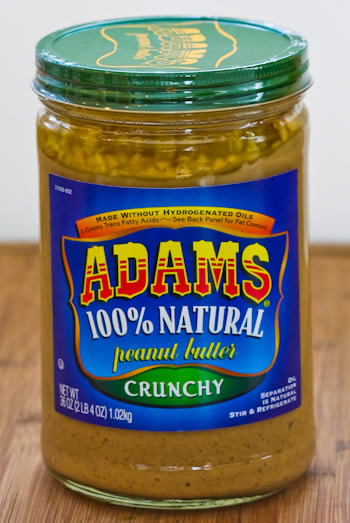
Rule #10: Avoid all peanut and nut butters unless they're minimally processed
Peanuts and peanut butter are healthy for everyone (unless you have a peanut allergy). But the added oils and sugars make them not so much of a good choice. This can be avoided by choosing a nut butter that is "natural" and minimally processed.
Rule #11: Choose Organic and Non GMO products whenever possible
Did you know that the majority of our corn is actually genetically modified? Corn is an ingredient that is in virtually all the foods that we eat. From the actual corn itself to corn in tortillas and chips, they're probably genetically modified. Choose organic and non GMO whenever possible to have the freshest and most natural food possible.
Rule #12: Always look at the date on the product
You don't know just how long something has been sitting on the shelf. Surely you don't want it to be expired when you buy it. Always look for the longest expiration date...even if it means grabbing it from the back of the shelf. Many grocers put the new items in the back and the older items in the front. Perfectly logical as the ones in front are older and going to expire soon. Do yourself a favor, rearrange that shelf and grab from the back where the newer items are found.
Rule #13: Stick to your grocery list
I mean it! Aside from shopping when you're hungry, deviating from your list will cause you to spend more money because you're putting more things in your cart. Adhere to the list and follow it!


